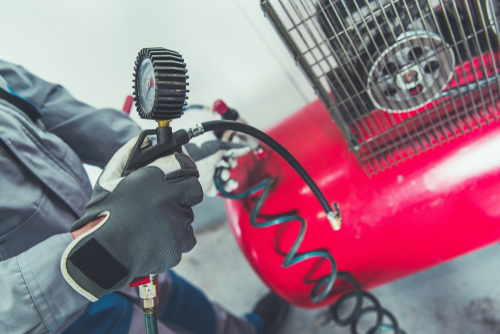
Air compressors are essential tools in various industries and households for powering pneumatic tools, inflating tires, and many other tasks. However, like any other mechanical equipment, air compressors can develop problems over time. Knowing common air compressor issues and their potential DIY solutions can help you troubleshoot and fix minor problems before they escalate into more significant issues. In this guide, we will discuss some of the most common air compressor problems and provide you with DIY solutions to help you keep your air compressor running smoothly.
1. Low Air Pressure
One of the most common issues that air compressor users face is low air pressure. This problem can be caused by a variety of factors, such as leaks in the air hose, a clogged air filter, or a faulty pressure regulator. To troubleshoot this issue, start by checking the air hose for any leaks and repairing them if necessary. Next, clean or replace the air filter to ensure that the air compressor is getting enough airflow. If the pressure regulator is faulty, consider replacing it with a new one to restore proper air pressure.
2. Air Leaks
Air leaks are another common problem that can affect the performance of an air compressor. These leaks can occur in various parts of the compressor, such as the fittings, valves, or hoses. To identify and fix air leaks, start by listening for any hissing sounds coming from the compressor. Once you have located the source of the leak, tighten the fittings or replace any damaged valves or hoses. Using a leak detection solution can also help you pinpoint the exact location of the leak.
3. Overheating
Overheating is a common issue that can occur if the air compressor is used for an extended period without proper maintenance. This can lead to damage to the motor or other components of the compressor. To prevent overheating, make sure that the compressor is placed in a well-ventilated area and that the cooling fins are clean and free of debris. Additionally, check the oil level in the compressor regularly and top it up if necessary. If the compressor continues to overheat, consider replacing the motor or other overheating components.
4. Oil Contamination
Oil contamination can occur in air compressors that use oil for lubrication. This can lead to reduced efficiency and performance of the compressor. To prevent oil contamination, make sure to use the right type of oil recommended by the manufacturer and change the oil regularly. If you notice oil contamination in the compressed air, drain and flush the oil system to remove any contaminants. It is also essential to check the oil filter and replace it if necessary to prevent further contamination.
5. Air Tank Issues
The air tank is an essential component of an air compressor, and any issues with it can affect the performance of the compressor. Common air tank problems include rust or corrosion, leaks, or pressure buildup. To prevent rust or corrosion, drain the air tank regularly and inspect it for any signs of damage. If you notice any leaks in the tank, repair or replace the affected parts to restore proper functionality. In case of pressure buildup, check the pressure relief valve and adjust it if necessary to prevent over pressurization of the tank.
6. Strange Noises
Strange noises coming from the air compressor can indicate various issues, such as worn-out bearings, loose components, or lack of lubrication. To identify the source of the noise, listen carefully and locate where it is coming from. If the noise is caused by worn-out bearings, consider replacing them to restore smooth operation. Tightening loose components or adding lubrication to moving parts can help reduce the noise and improve the overall performance of the compressor.
7. Motor Problems
Motor problems are another common issue that can affect the performance of an air compressor. These problems can arise due to issues such as overheating, worn-out brushes, or electrical faults. To troubleshoot motor problems, start by checking the power supply and ensuring that it is working correctly. Inspect the motor for any signs of overheating or worn-out brushes and replace them if necessary. If the motor continues to malfunction, consider seeking professional assistance to diagnose and fix the issue.
Summary
Air compressors are versatile tools that can be used for various tasks, but they can develop problems over time. By knowing common air compressor issues and their potential DIY solutions, you can troubleshoot and fix minor problems before they escalate into more significant issues. Regular maintenance, such as checking for leaks, cleaning filters, and inspecting components, can help prevent common problems and keep your air compressor running smoothly. If you encounter more complex issues with your air compressor, do not hesitate to seek professional air compressor repair services to ensure proper diagnosis and repair.
Need an Air Compressor Store in Milwaukee, WI?
Established in 1932, Wenniger Compressor Co. specializes in air compressors, centrifugal pumps, diaphragm metering pumps, fans, generators, high-pressure air compressors, hoists (all types), lubricated reciprocating air compressors, oil separators, refrigerated air compressor dryers, rotary screw, sliding vane air compressors, submersible pumps, and vacuum pumps. Additional services include rental units, parts, lubricants, rotary screw compressors, service calls, routine maintenance, and much more. Our employees are all licensed to help you make the best decision. Contact us today to schedule an appointment or to get an estimate on the perfect service you need.
